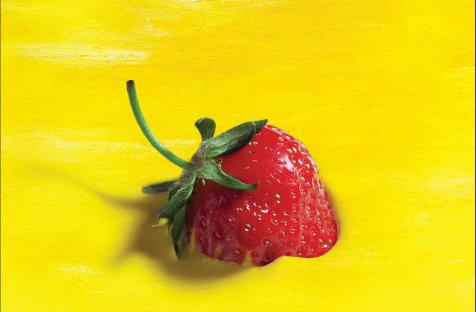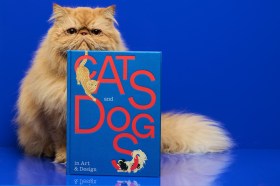Linda Jaivin’s debut novel, the erotic Eat Me was first published in 1995 to an equal measure of rave reviews – which instantaneously led to it becoming an international bestselling cult classic – and controversy, which resulted in the novel being banned in various American locations. Upon its original publication, The Age described it as ‘a delicious, bravura piece of comic and erotic writing’ while the LA Times called it a ‘high-spirited comedy of manners only thinly veiled as erotica’.
In November this year, Eat Me was reproduced as a Text Classic – a series of influential, and mostly out-of-print Australian books republished in simple, affordable new additions. Eat Me joins a second wave of 2012 Text Classics that include David Ireland’s A Woman of the Future, Boyd Oxlade’s Death in Brunswick and C.J. Dennis’s The Songs of a Sentimental Bloke.
Best known for her literary erotica Triptych and sexual memoir Affection, Krissy Kneen introduces the novel in a venerating homage to Jaivin. Of the characters portrayed in Eat Me, Kneen says: ‘These are strong, funny, playful women who allow themselves to indulge their own fantasies, aware of the conundrums of being a feminist in a sexually complex world’.
Befitting its title, Eat Me kicks off with a lascivious scene involving a scantily clad woman, an array of fruits and vegetables, and a voyeuristic bystander bearing witness to one salacious act after another. From a confronting and highly visceral introduction, readers are catapulted into the lives of four friends. There is Philippa – an elusive erotica writer who takes notes on her friend’s lurid sex tales while exploring her own sexuality; Julia – an adventurous photographer who has a penchant for younger men and snake charmers; Chantal – a glamorous fashion magazine editor with an incongruous past; and Helen – a feminist academic who longs for the most unlikely of men while wrestling with the inherent contradictions of her sexual desires.
Contrary yet empowered, flawed but real, the female protagonists grapple with their sense of self and deftly manoeuvre between the nature of their sexual wants and the moral implications of harbouring such desires – best encapsulated in this sentiment expressed by Helen after a random sexual encounter with a truckie who fixed her car:
‘Is this too pornographic? Are you shocked? I can’t really stop here, though, can I? Besides if it’s pornographic, do you think it proves or disproves Robin Morgan’s thesis that if rape is the practice, pornography is the theory? What happens when we women write the pornography? Can we rape ourselves?’
Taking a leaf out of great-erotic-grandmother Anaïs Nin’s book, Jaivin headily portrays various sexual pursuits while delving into the deep emotions, close relationships and ethical dilemmas that underpin such encounters. The result is sex that is not ‘explicit, mechanical or overdone’.
Akin to a narrative within a narrative, the novel seamlessly flows back and forth between Philippa’s fictional depictions of sex and the four characters’ lives – effectively blurring the lines between fantasy and reality.
The reader is gifted with an omniscient perspective and is privy to the thoughts of each main character and various peripheral characters. The frequent change in viewpoints and the innocuous way prized bits of information are divulged enlivens the plot. Nonetheless, Jaivin is careful not to reveal too much, as a subtle twist at the end of the novel prompts readers to reconsider everything they have just read.
Throughout the novel, a comparison is often drawn between sex and food – both are placed on a pedestal and rendered sensuous through the use of deeply evocative language:
‘She ran her fingers over the fresh figs. Surprising little sacs they were. Funny, dark and wrinkled, yet so exquisite on the tongue. Mother Nature had surely been thinking of Father Nature when she invented figs.’
In a time where Fifty Shades of Grey has gained notoriety through its depiction of bondage/discipline, dominance/submission and sadism/masochism, Jaivin confesses that themes of degradation are a personal turn-off:
‘I don’t like erotica that centres on degradation. Submission is a complicated one, because you can submit and have quite a lot of fun submitting. But if it comes with degradation and humiliation and real power imbalances, it doesn’t turn me on,’ she told the Courier Mail in 2009.
Light and humorous, provocative without being tawdry, Eat Me is a refreshing take on the interplay between women, sex and feminism. Successfully wrenching erotica from the domain of male writers, Jaivin waxes lyrical about sex from the prized perspective of a female writer – all the while providing the opportunity for women to revel in their own fantasies and desires.
Rating: 4 stars out of 5
Eat Me
By Linda Jaivin
Paperback, 320 pp, RRP $12.95
ISBN: 9781922079817





